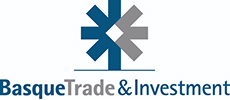Czechia and Slovakia
The business relationship between Czechia, Slovakia and the Basque Country is focused on key sectors such as the automotive industry, advanced manufacturing, technology and energy. These highly industrialised regions share trade ties and strategic partnerships, particularly in technological innovation and renewable energy. Basque companies have a long-standing presence in Czechia and Slovakia, which has led to numerous trade ties and growing cooperation in the field of industrial digitalisation and Industry 4.0, driven by European initiatives that facilitate trading and joint development of industrial projects.
Two companies where Basque companies are strongly present
Czechia and Slovakia, both member countries of the European Union and NATO, have followed similar paths since their separation in 1993, but with some key differences in their global influence. Czechia plays an active role in EU policy, driving energy security policies and strengthening the block’s borders. Despite having a more limited global political influence, Slovakia continues to be a strong ally in NATO and an important player in Central Europe.
Czechia is an attractive market for investors thanks to its export policies, its mature industrial sector and its access to western and Eastern markets; while Slovakia remains a stable lure focused particularly on the industrial and automotive sectors.
Tomáš Buchtele
Director of Basque Trade & Investment Czechia and Slovakia
BASQUE TRADE & INVESTMENT REPÚBLICA CZECHIA AND SLOVAKIA
* Office hours:
Monday to Thursday: 7.30 a.m. to 4.00 p.m.
Fridays: 8.00 a.m. to 1.00 p.m.
